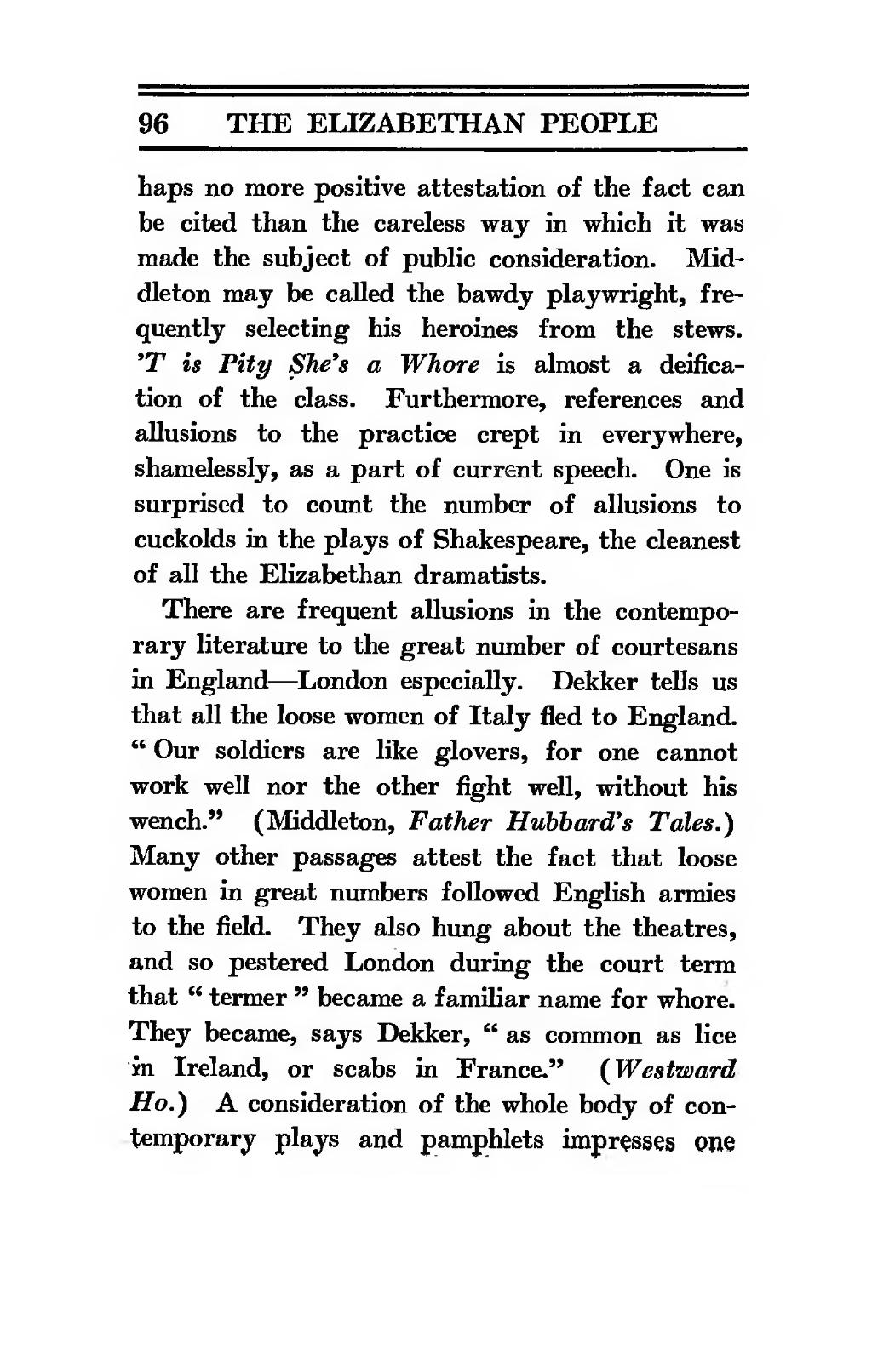haps no more positive attestation of the fact can be cited than the careless way in which it was made the subject of public consideration. Middleton may be called the bawdy playwright, frequently selecting his heroines from the stews. 'T is Pity She's a Whore is almost a deification of the class. Furthermore, references and allusions to the practice crept in everywhere, shamelessly, as a part of current speech. One is surprised to count the number of allusions to cuckolds in the plays of Shakespeare, the cleanest of all the Elizabethan dramatists.
There are frequent allusions in the contemporary literature to the great number of courtesans in England—London especially. Dekker tells us that all the loose women of Italy fled to England. "Our soldiers are like glovers, for one cannot work well nor the other fight well, without his wench." (Middleton, Father Hubbard's Tales.) Many other passages attest the fact that loose women in great numbers followed English armies to the field. They also hung about the theatres, and so pestered London during the court term that "termer" became a familiar name for whore. They became, says Dekker, "as common as lice in Ireland, or scabs in France." (Westward Ho.) A consideration of the whole body of contemporary plays and pamphlets impresses one

